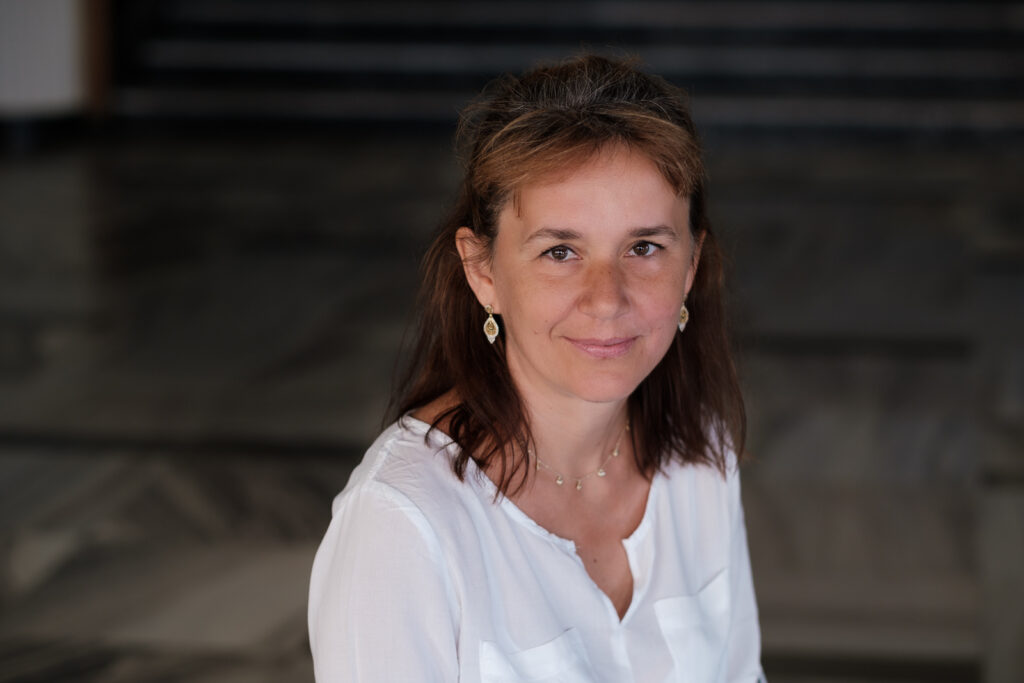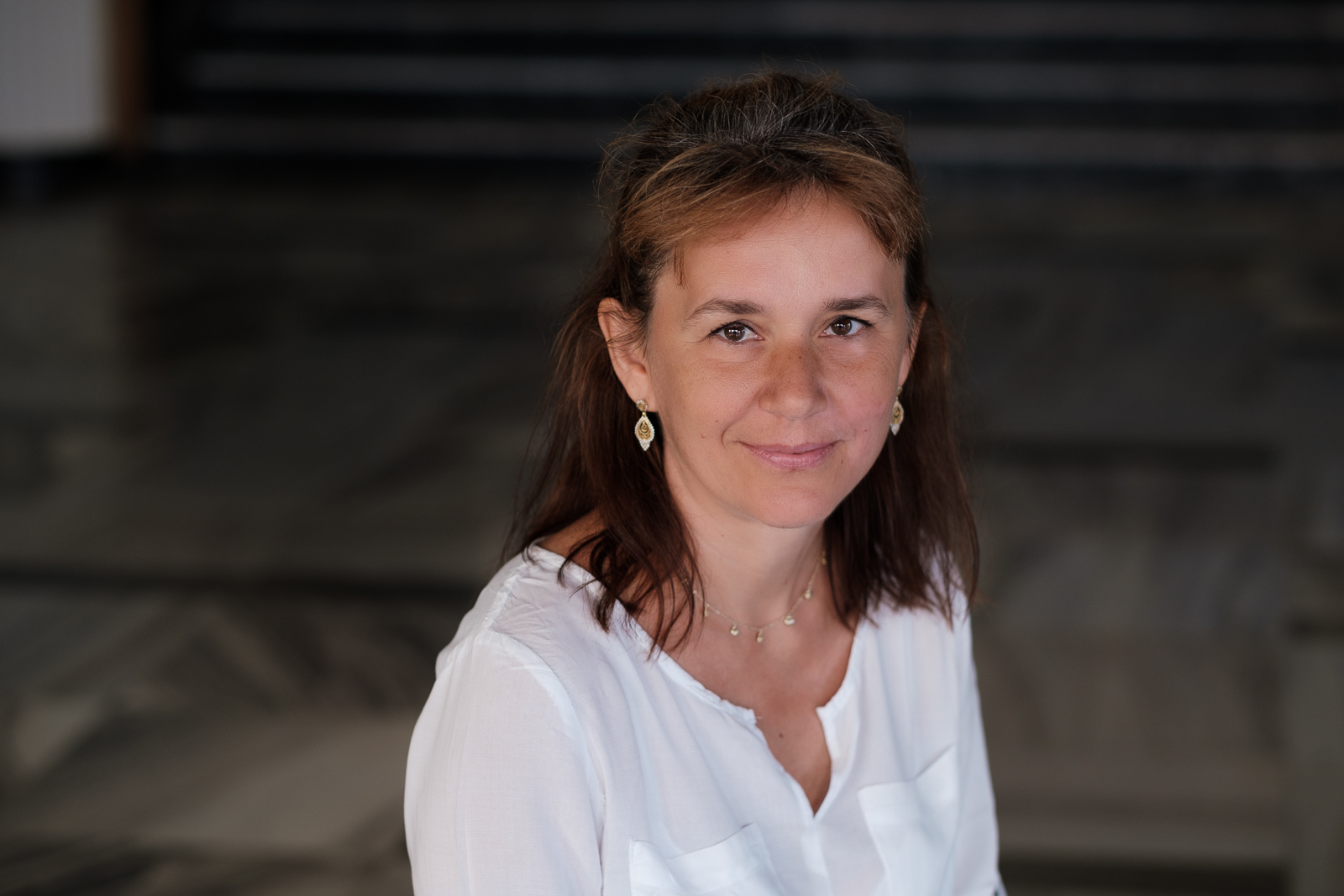

Katarzyna Radke is a Senior Lecturer of English in the Foreign Language Centre at Adam Mickiewicz, Poznan, Poland. She’s done more than 10 virtual exchange collaborations since 2018 and shows no signs of slowing down.
“In 2020, the pandemic arrived and we had to change our plans very quickly, a month before the project started, so we amended the content to suit an evolving situation.”
How it all began
“Back in 2018 I heard another Polish academic and UNICollaboration mentor and trainer, Gosia Kurek, speaking at a conference about international students enjoying an intercultural experience without the need for travel. Right away, my interest was piqued and I knew this is what I wanted for my students too’, she explains.
Many of Katarzyna’s students aren’t able to travel. This may be because they are not ready, or for financial or family reasons. She saw virtual exchange methodology as a way of helping to bridge this gap. She immediately registered for training opportunities in this area and kept going back for more.
“One training isn’t enough’, she smiles, ‘there is just so much information to digest. In the end, I did about 4 or 5 including with UNICollaboration training, which is excellent, by the way.
“I found wonderful partners in the end. All were really committed. I worked with Judit Hahn at Jyväskylä University in Finland, who is hugely experienced in VE methodology, as well as with Malin Glimang from Malmö University in Sweden, and Cecilia Magadan from Buenos Aires in Argentina. Later on, also Ivonne Dekker came on board from the University of Applied Sciences in Utrecht, the Netherlands.”
Flexibility is key
Katarzyna stresses the need for flexibility and being prepared for the unexpected in virtual exchange projects!
“You never know what’s around the corner’, she laughs. In 2020 we had set up a VE project that included China, about the needs of Chinese students. We had wanted to invite them to Europe. But the pandemic struck, which had originated there, and which meant this option wasn’t possible anymore. We had to amend the content to fit ‘general needs of tourists’ and adapted our VE collaboration to an evolving situation. For this reason, I say – flexibility is key!”
“In our foreign language centre, we teach languages in 20 different faculties. I teach in the geological and geographical sciences department. Therefore, my students specialize in languages for these specific purposes.”
Katarzyna’s other students include tourism students who love to travel. She invited them to try out a VE embedded course about cities.
The impact of different perspectives
“Judit, my partner from Jyväskylä realised that Posnan and Jyväskylä are partner cities so that was a great starting point for our VE collaboration,’ she explains. ‘With that in mind, we created a VE project that required each side to show their city to the other side virtually, from a personal perspective. This was not information they could find out using google. The way we structured the VE course meant they had to collaborate to find this information. In other words, they ‘needed’ each other to move forward in the VE project.
“We asked them to go to the town, record scenes of their favourite places to eat and hang out in. Then they showed the others these little videos in order to promote their city in this way – a personal perspective. That was the first project (2018).
Katarzyna did another project with Sweden and Argentina – with the same partners – again around cities. But each partner brought something else to consider: Argentina was focused the economy, Sweden cited diversity and inclusion and different needs.
“This was very eye opening,’ explains Katarzyna. “All three sides brought something to the table which was rather unexpected, yet valuable in terms of how to structure the VE and what content to include.
“Of course, English is important,’ she continues, ‘but actually I consider the language as a tool to explore and resolve other issues. There are other greater challenges to face.”
Lack of institutional support
“I thought we could go on forever, but it wasn’t always easy, so after 10 iterations I realised I needed to be ready for everything. Some COIL collaborations worked better than others and it’s always a learning experience.
“My biggest challenge was introducing the idea of virtual exchange to my university so I could get support from the powers that be.
“I wanted to inspire my colleagues because VE reflects my own situation as a young student,’ explains Katarzyna.
“I was a student during the soviet era and it was impossible to travel with no visa and no money. On the positive side, when Poland opened up a bit, UNESCO teachers came from abroad and this really inspired me. I realised that language wasn’t just a ‘textbook’ thing, but a living, evolving thing.”
Katarzyna’s light bulb moment came when she realised she was able to communicate using English, and she grew in confidence. With this new-found confidence, she began moving away from rigid exam-based teaching towards a more fluid, flexible approach in an online collaborative context.
“Doing virtual exchange provided that context and enabled me to help my students realise they could do this. In this way, I embedded VEs into my courses. I was a bit of a pioneer in exploring and experimenting and I didn’t really tell anyone what I was doing.”
She got her students to volunteer to try it out and it worked well. She stresses that the combination of having committed partners and students helped get COIL collaborations off the ground. However, getting the necessary technical and financial support was hard at the start.
Towards a positive resolution
There was light at the end of the tunnel though, and following the successful implementation of a VE project focusing on soft skills for future employment, her rector began to take an interest. More teachers were coming on board in the meantime too.
“My internationalisation vice-rector, prof Rafal Witowski, also responsible for internationalisation at home, realised there was value in COIL,’ she says, “He even visited Sao Paolo at IVEC last year and found it fruitful. He networked with many Latin American universities, so I can see other faculties getting involved.
“Us language teachers are the pioneers, but others will come on board. I am sure this will happen. My university has even expressed interest in hosting IVEC one year so this would be a wonderful opportunity for spreading the word.”
